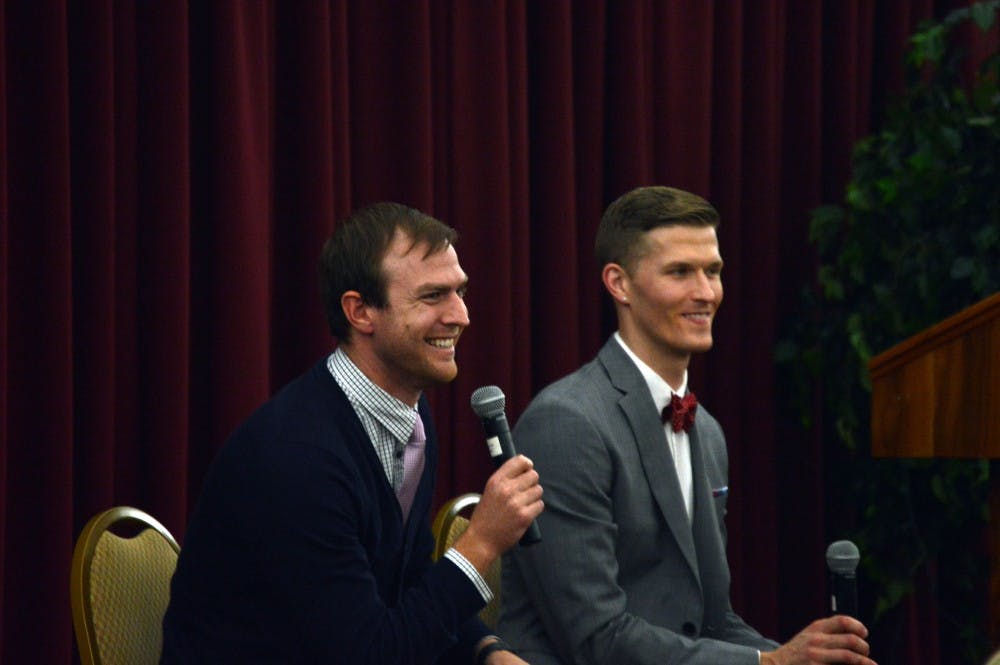Inclusion in athletics: Embracing the LGBTQ Athlete

Sean Smith (left) and Eric Lueshen (right) share their stories and struggles of being an LGBT athlete. They answered questions and offered advice to the audience in the UC Rotunda on Monday, October 12, 2015.
Being authentic is the superpower of the LGBTQ+ community.
That was one of the messages given by Sean Smith and Eric Lushen, two men who dreamed of having lifelong careers in sports. They spoke about their experiences as gay men in college athletics after being invited to campus as guest speakers Oct. 12 at the Bovee University Center Rotunda.
Smith swam for the University of Arizona. Lushen was a placekicker for the University of Nebraska Lincoln. Both struggled with derogatory remarks about their sexualities and the way they were perceived playing college sports.
Lushen said he feared for his life in college.
"Throughout that first year I had to deal with a lot of homophobia on my team," he said. "In one incident I had a physical altercation with a teammate in the hallway and was legitimately scared for my life."
Lushen said being "authentic is the superpower of the LGBTQ+ community," a power which he used to change people's minds about his sexuality. People he considered homophobic started to have his back and the guy who threw him against the wall said he no longer considered him a stereotype.
Smith also dealt with suicidal thoughts and self-hatred his senior year of college. He ended up quitting his lifelong dream of being a swim coach after coaching for just one year.
"I just couldn't handle it anymore and had to step away from sports for a while and take some time to figure out what being gay meant," he said.
Assistant Professor in the Department of Physical Education and Sports Marcia Mackey said the issue of sports homophobia in the U.S. was the reason the panel was inspired and put on by her Sports Event Management Class.
In a study printed by the New York Times, the United States had the worst score out of six other countries in a study on sports homophobia.
The main message the speakers gave was that language matters and people should work to create an inclusive environment.
"If you grew up in a locker room you are going to hear certain words," Smith said. "If you have 400 athletes in the university, odds are someone in the locker room is hearing those words and they are not just bouncing off of them."
After talking about their experiences, the audience was given time to ask questions at the speakers – and the speakers took that time to ask a few of their own as well. Lushen asked Rayshawn Simmons, a senior from Missouri and men's basketball captain at CMU, what the environment is like within CMU athletics.
"We are all pretty good. We pretty much encourage people to be whoever they want to be," Simmons said. "There is no hazing or bullying on our team."
Something he took away from the program was helping people feel more comfortable in coming out with their sexuality, and eliminating homophobic comments he hears around him in life.
The speakers also took time for round table discussions with the Student Athletic Advisory Committee, athletic coaches and administrators and upper university personnel on Sunday and Monday. They wanted students to take the new perspective from the program and work to grow a more inclusive campus environment.
"The ball is in your court," Lushen said.



